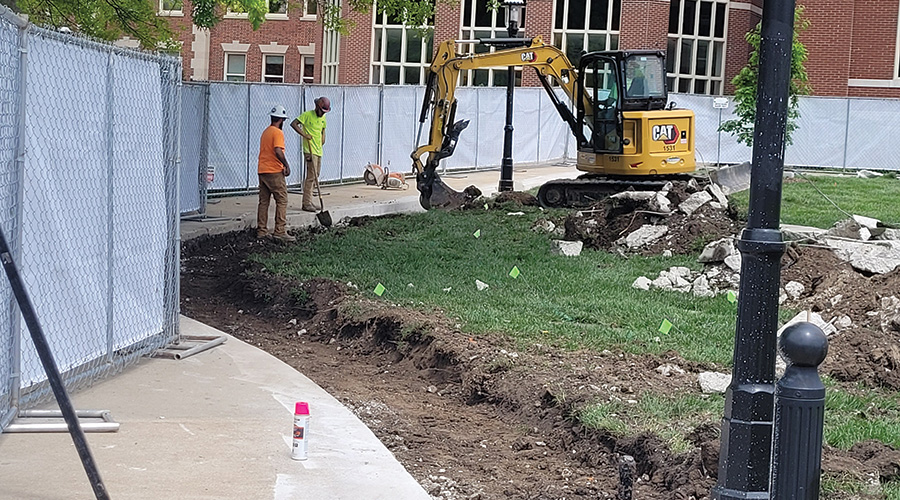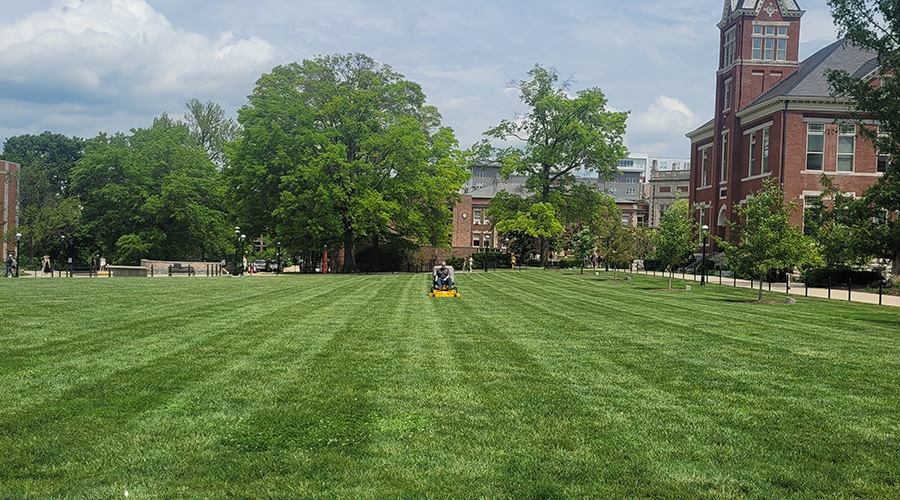Financial Considerations Factor Into Utility Vehicle Purchases
The process of selecting utility vehicles for use on the Georgetown campus has to take into account a host of factors in order to ensure the final selection can meet the needs of a diverse group of users.
"When we're purchasing these vehicles, we have identified certain criteria that must be met in order to fulfill our needs," Connor says. For example, "size does matter because of using sidewalks as our roadways." Among the top priorities are the financial considerations.
"Preventive maintenance, insurance, licensing and taxes are all dramatically reduced with these types of vehicles," compared to a traditional pickup truck, Connor says. "There's no license and registration or taxes associated with that. There's just semi-annual inspections that you have to do twice a year for commercial vehicles."
As on many college and university campuses, sustainability ranks high on the list of specification considerations.
"Because we are a diverse educational university, we focus on sustainability issues constantly," Connor says. "Fuel sources and alternative fuel sources are always a consideration. We use gasoline, electric and bio-diesel fuel. If we have the opportunity, we use electricity.
"(Electric vehicles produce) less noise, less maintenance. Your motor is really your battery pack, so longevity tends to be a little bit better. Properly maintained, you'll get four or five years out of a set of batteries, and they're perfect for what we use them for. The majority of them are people movers, so we just get one or two people moving around a 100-acre campus, so I can get two days out of a charge."
Connor's specification process also must take into account the amount of noise any given vehicle makes.
"Because of the way the campus is laid out, there are dormitories throughout the campus," he says, adding that workers "are not supposed to bother the students before 9 a.m., and during study time, you're not supposed to run any motors. So there are some guidelines, let's say."
Connor's department is more than equipped to handle the maintenance requirements of any new piece of equipment — seven technicians and a supervisor staff a 35,000-square-foot garage with seven 60-foot bays and maintain everything from weed eaters to buses — but the arrival of electric utility vehicles has had minimal impact on their workload.
"When you run into an electric vehicle, training is very minimal as far as the driver, the operator," he says. "As far as maintenance goes, there's very limited parts that need to be trained specifically. You really have just the controller and motor. Troubleshooting is easier than gas-powered or computer-operated cars."
Related Topics:














